The Welsh Government declared climate emergency, since the declaration, what is being done? What can we do?

Panellists at a recent climate panel declared that there is still work to be done to mitigate climate change, despite the outcry for Climate Emergency.
At a dimly lit Welsh Assembly on a Wednesday evening, four eager panellists prepare themselves for an intense discussion about the urgency of climate change.
“This is the crisis of our time,” said Alice Taherzadeh, PhD candidate for Cardiff University at a recent panel discussion: ‘Tackling the Climate Emergency’ in Cardiff hosted by Hope for the Future. Panellists debated what both the government and us citizens could do to tackle climate change.
This conversation is a response to the declaration made by Lesley Griffiths, the Minister of Environment, Energy and Rural Affairs. Nine months ago, following the Extension Rebellion protest that was held in Cardiff, she announced a ‘climate emergency for Wales’.
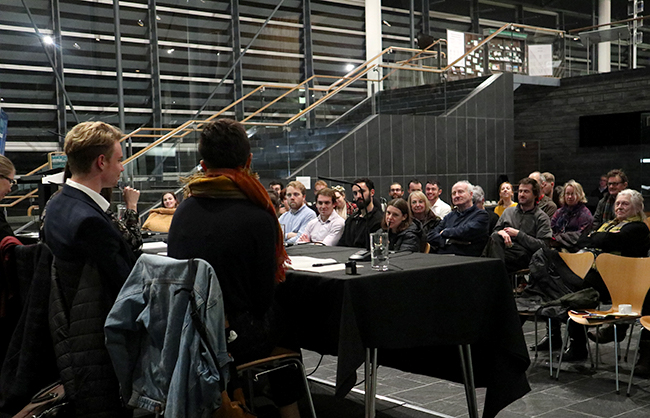
“We have a global crisis, we have a UK crisis and we have a Welsh crisis,” said one of the panelists, Jenny Rathbone, Assembly Member for Cardiff Central. “We have a global crisis because we have a world that is warming at a pace that is quite terrifying.”
With two degrees warmer globally compared to pre-industrial levels, we are moving towards a hotter climate. This will bring hotter, drier summers and milder, wetter winters, and increasingly extreme weather events. One of the biggest culprits for this is the transportation sector, which generates the largest share of greenhouse gas emission.
A recent study shows that air quality in Cardiff is the fourth-worst in the UK, trailing behind Luton, Crawley and Leamington Spa. Poor air quality is the greatest environmental risk to public health in the UK.
Particularly in Cardiff, car traffic is one of the main causes which contribute to the high amount of air pollution and congestion. Commuters spend an average of four days stuck in traffic during peak times. According to the recently released report from Cardiff Council.
Whilst globally, 15% of all co2 emissions are due to car traffic.
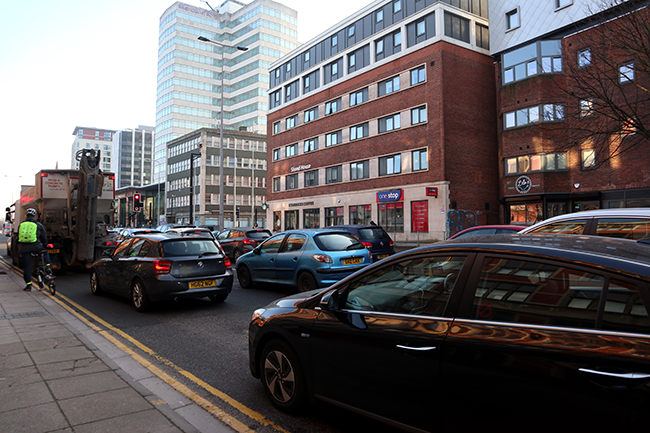
“90,0000 commuters also come in and out of Cardiff each day from outside the city,” the council report said. Air pollution is a silent killer, which has an effect on everyone’s quality of life, health and wellbeing one way or another.
In response to this, Cardiff Council has launched a £2 billion plan in order to tackle the climate emergency, reduce congestion and improve air quality in Cardiff. Cardiff’s Transport and Clean Air Green Paper outlines a series of projects which will see to improve Cardiff’s public transport system.
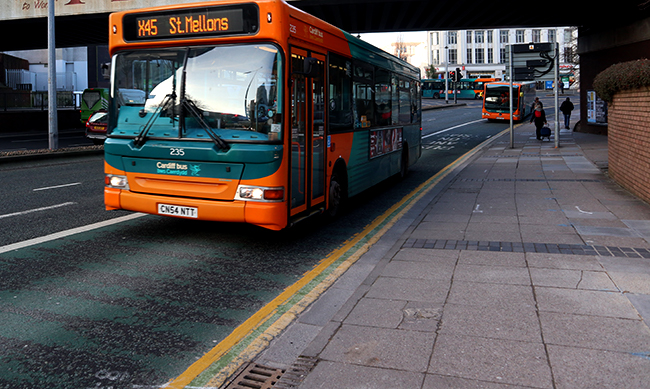
For example, it plans to expand a metro line and provide better bus transport. Furthermore, it aims to improve current cycle infrastructure and pedestrian routes and encourage electric car usage with increasing charging point across Cardiff.
So, the plans are in place, however, perhaps as any new “product” on the market, the need to understand the “consumers” needs is vital to both understand and to inspire people to embrace greener alternatives.
This is the job for one of the panellists, Dr Catherine Cherry, a Research Associate from the Center for Climate Change and Social Transformation (CAST). She is among a team that researches the public perception of climate change.
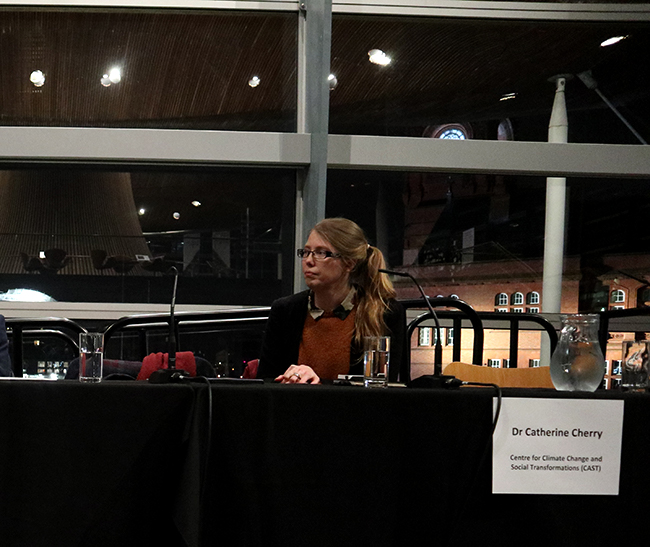
“We looking at really big societal changes,” said Catherine. “We are looking around four areas around consumption, diet, transport and heating and cooling.” CAST, a global hub was started a year ago, with corresponding comparison studies undertaken in China, Sweden and Brazil.
Through a series of workshops, they are exploring the reason why people make their choices, what their values are and what matters to people. Where the factors of: ‘trust’, ‘equality’, ‘social connection’, ‘costs’, and ‘convenience’ make a difference in people’s attitude toward going environmental.
“We are in the middle of data collection,” said Catherine. “We are exploring the public vision of what the future might look like, by presenting them with different options, like showing them a life where we eat less meat or travel less.”
The aim of the research is to change the understanding of how we can change our lifestyle and governance for a more sustainable, low-carbon future. Over the next two or three years, findings will be continually released.
So what can we do? tackling climate change on the different levels is important, from the global to a local perspective. Yet, as individuals, we can do our part.
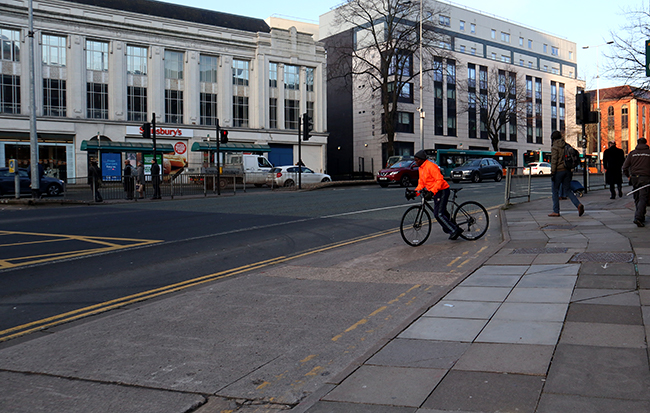
“I think probably the most important thing is to say you don’t actually need to be perfect,” said Catherine. “There is a lot of discussion about hypocrisy, you do one good thing, but then people call you out for doing another thing that is not eco-friendly.”
Catherine provides 6 top tips on how we can engage in tackling the climate emergency in the video below.
